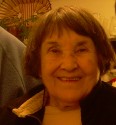Police in Saanich, British Columbia, are investigating a narcotic poisoning incident involving an 88-year-old resident of an elder care facility that may provide a classic example of how the elderly in Canada and the United States often have little protection by legislation or organizations that are charged with their safety.
Records show that Kathleen Palamarek, a resident of The Lodge At Broadmead in Greater Victoria, British Columbia was removed from her room by ambulance attendants on the morning of February, 24, 2011 and taken to a local emergency room after a 911 call from her daughter Lois Sampson. Mrs. Palamarek was diagnosed as suffering from narcotic poisoning after being prescribed a morphine opiate. People familiar with her case say she is fortunate to have survived.
I met Mrs. Palamarek last year during a visit to British Columbia to speak about elder care issues and during that visit made numerous contacts among Canadian elder care advocates. Those contacts have proved invaluable in gathering information on Mrs. Palamarek’s case, because her daughter and son-in-law are awaiting a legal ruling on their efforts to release her from Broadmead and decline to speak about it.
However, others close to Mrs. Palamarek say that Mrs. Sampson, accompanied by her husband Gil and a registered nurse, found her mother – who the Sampsons maintain has no major medical issues and normally is alert and mobile – in a nearly comatose state on the morning of Feb. 24, 2011. An intravenous medication was being applied through a medical device known as a PICC, or Peripherally Inserted Central Catheter.
The emergency room diagnosis revealed that Mrs. Palamarek was prescribed hydromorphone, a powerful morphine derivative supposedly because she was deemed “palliative.” Palliative care is defined as providing medical or comfort care for people with intractable pain due to incurable diseases. Those familiar with Mrs. Palamarek say she does not have any terminal illness, nor does she have intractable pain.
You may be asking what this has to do with elder care issues in the United States in general or Connecticut in particular. I’ll get to that in a bit, but first I’ll give you a rundown on the case in British Columbia.
According to case records, the Sampsons have waged a costly and frustrating three-year legal battle to win the release of Mrs. Palamarek from Broadmead Lodge into their care. The records and interviews with principals in the case show that Mrs. Palamarek originally entered the facility in 2007 after she was hospitalized for an internal hemorrhage caused by the improper prescribing of two drugs.
In 2008 Mrs. Palamarek met with a lawyer, who assessed her to be capable of legal instruction. After several meetings, she appointed her daughter Lois Sampson as her legal representative so she could move out of Broadmead. She moved in with her daughter briefly, but was forced by Canadian authorities to return to Broadmead.
That “involuntary apprehension” occurred on the afternoon of October 31, 2008, as Lois, Gil, Mrs. Palamarek and a family friend who also is a registered nurse and advocate for the elderly, waited in Lois’s home for other family members to arrive for a scheduled visit. However, a knock at the door revealed instead a squad of police and ambulance attendants who seized Mrs. Palamarek, hustled her into a waiting ambulance, and returned her to forced confinement.
The B. C. Mental Health Act allows medical personnel and police officers to apprehend, detain and treat a person against their will if they believe the individual’s physical or mental condition “may” deteriorate – based solely on their own observations or on “information received” from any other person. No evidence or substantiation is required.
This forms the basis for my concerns about the laws in Canada. Even though the US does not have uniform laws to protect the elderly, groups in both countries are working to “harmonize” existing laws so they would be the same in Canada and the US. Considering how the Canadian authorities terrorized an elderly widow and her family, we should all be concerned about efforts to duplicate those laws here.
Unfortunately, cases similar to Mrs. Palamarek’s are not rare in Canada or the US.
After Mrs. Palamarek’s apprehension and confinement, the Sampsons immediately initiated a series of legal actions with the goal of returning her to their care. The case went to trial late last year. Final summations were delivered on Feb 18, 2011, but to date no decision has been released by the presiding judge.
There is a history of complaints concerning the medications that have been prescribed to Mrs. Palamarek at Broadmead, so the Sampsons hired a toxicologist, Ron Tisdell, who owns Toxicology Litigation Consultants, Inc., in Texas, and is an expert witness in cases involving drugs. Tisdell also is a licensed pharmacist in Canada and performed an extensive review of Mrs. Palamarek’s prescribed medications, resulting in a scathing report.
The drugs originally prescribed for Mrs. Palamarek included Fentanyl patches, another powerful opiate that is reserved for patients who are in intractable pain that cannot be managed by regular analgesics such as Tylenol or codeine. Tisdell’s analysis stated that sometimes the patches were defective or leaking, and at other times, although the medication was prescribed it wasn’t administered or went missing.
“I found it appalling that Mrs. Palamarek was not in pain, yet she was prescribed Fentanyl patches,” he said. Nonetheless, it was barely a week after the trial concluded that Mrs. Palamarek was again administered powerful narcotic medications.
David Cheperdak, CEO of the Broadmead Care Society, which operates The Lodge at Broadmead, said today that “Privacy laws and respect for the confidentiality of our residents prevent me from commenting on the specifics of this, or any other person in our care. Additionally, I cannot comment on an ongoing police investigation. What I can tell you is that the health, safety and well being of people in our care is always our number one priority.
“It’s important to note that while I can’t speak to specifics, Mrs Palamarek’s entire family (save one) have expressed for the last 3-4 years that they are very pleased and satisfied with the excellent care that their mom has received while at The Lodge at Broadmead.”
Nonetheless, regarding the Feb. 24, 2011 hospitalization of Mrs. Palamarek, Tisdell remarked, “That lady is lucky to be alive.”
After removing her from Broadmead the ambulance medics treated Mrs. Palamarek with narcotic overdose medication, and upon arrival at the hospital emergency room the treatment was administered again. Mrs. Palamarek responded positively and soon was able to sit up, converse, eat and drink.
However, according to records filed with the police, the emergency room physician was prevented by lawyers representing the Vancouver Island Health Authority from performing any further tests on Mrs. Palamarek, even a routine blood test. She was ordered returned to Broadmead over the Sampsons’ strenuous objections.
The administration of the palliative morphine “placed Mrs. Palamarek in great jeopardy,” Tisdell said.
The Sampsons discovered that the morphine prescription was written only days after the court proceedings concluded. Others who are monitoring the legal proceedings say that had Mrs. Palamarek died before the judge’s decision has been rendered, all of the matters before the court would have been declared “moot.”
The Sampsons and the registered nurse who was present when the paramedics were called reported the poisoning incident to the Saanich Police Department. Asked for an update on the case, department Public Information Officer Dean Jantzen, wrote, “I have spoken to Kathleen Murphy (the detective assigned to the case.) This is an active investigation that she is currently working on. At this point it would be premature to speak about this until she concludes her inquiries.”
A letter expressing grave concerns regarding Mrs. Palamarek’s safety was also sent to the health authority but no response has been received thus far.
Concerns about Mrs. Palamarek’s medication have been raised since before she was forcibly returned to Broadmead. In July 2008 the Sampsons filed a formal request with the Public Guardian and Trustee (PGT), the state agency that oversees the guardianship of British Columbia’s elderly, seeking an independent medical assessment of her health and drug regimen. That request was denied outright.
Canada’s actual treatment of some of its elderly citizens does not appear to jibe with the international view of that country as a benign human-friendly sanctuary. Reviewing the case of Kathleen Palamarek and others reported in the media shows that in Canada, growing old may result in facing unexpected and potentially lethal issues.
It is said that the wheels of justice grind slow, but in the case of Kathleen Palamarek there is a legitimate question of whether they are moving at all. The police are investigating, but a decision on the court case has been pending for more than a month.
The Sampsons have had further issues with Mrs. Palamarek’s treatment in Broadmead since the Feb. 24 narcotic poisoning incident, and meanwhile Kathleen Palamarek spends much of her time in her room, reading books, and waiting ….
[ad#uconn468]





My God! I am horrifeid though, sadly, not surprised at the series of events you have encountered while trying to deal with the “Health Authorites”, government etc. For several years my family went through a nightmare of incomprehensible incidents with the healthcare system as we tried to protect our mom’s right to take her next breath. It would appear from my own experience (and many others) and certainly from yours, that the health authorities are able to change not only the criminal and civil laws of this country, but also the Canadian Constitution, and the Charter of Rights and Freedoms. If you are elderly then suddenly you have no rights at all. In all honesty the Geneva Cionvention affords more rights to prisoners of war than we do to the people who built this country. I wish you luck and I absolutely offer my full support.
This stoory has been sent out world wide for the attention it needs.
Thank you
People must fight for the elderly as this is also going on with our parents who are in the Rest (Death) Haven Lodge in Sydney, BC. The home is killing our parents with anti-psychotics, while Dr. Death (Marsh)has overdosed our parents several times and our father who is a Second World War Navy Veteran is being tortured with anti-psychotics as he is having severe allergic reactions such as blisters which seep puss in his mouth, body, arms, legs, feet, and groin.
The RN’s continue to lie to us, and now the Rest Haven management has told them not to give us any medication sheets so that we cannot see how they are poisoning our parents. Gary Zachary, the Director of this death camp, has threatened me with legal action if I exposed what they are doing on the internet. Sue on Gary!!! You will never shut me up. The truth will come out.
I used to think that Worksafe BC was the lowest form of government, but I was wrong. It is the provincial government, VIHA, and the homes.
The provincial government have sanctioned it, the media have ignored it, and the provincial have sanctioned this after a kangaroo investigation, the VIHA exonerated this death camp of any abuse.
This is a conspiracy of major proportions and it is epidemic in society.